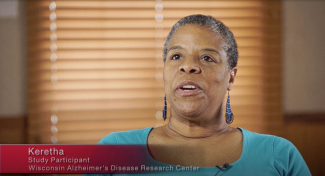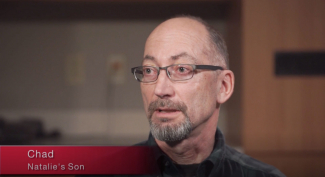
The National Institute on Aging (NIA) featured participants from the Wisconsin ADRC on a new webpage that aims to educate people about the process of brain donation and how people can enroll in a brain donation program. "Brain Donation: A Gift for Future Generations" explains how brain donation helps researchers study brain disorders, such as Alzheimer’s disease and related dementias, and how researchers can learn the most from donations from people who participated in research studies when they were alive.
The webpage featured a quote from Keretha, a participant in the Wisconsin Brain Donor Program: "My mother believed in education and service to others. This is an opportunity for others who believe in their community, who believe in research, who have had an interaction with Alzheimer’s to donate. It's a final gift to those you’re leaving behind, participating in the study, knowing that you can be a part of the solution."

The page also featured videos in which participants in the Wisconsin Brain Donor Program share their families’ stories.
Watch: Brain Donation — Keretha
Watch: Brain Donation — A Family's Story
The Wisconsin Brain Donor Program was established in 1995 and has more than 1,350 people registered to donate. Participants in Wisconsin ADRC research studies and their biologic parents can enroll in the Wisconsin Brain Donor Program. Healthy older individuals without memory difficulties are also considered for enrollment.
- Log in to post comments



